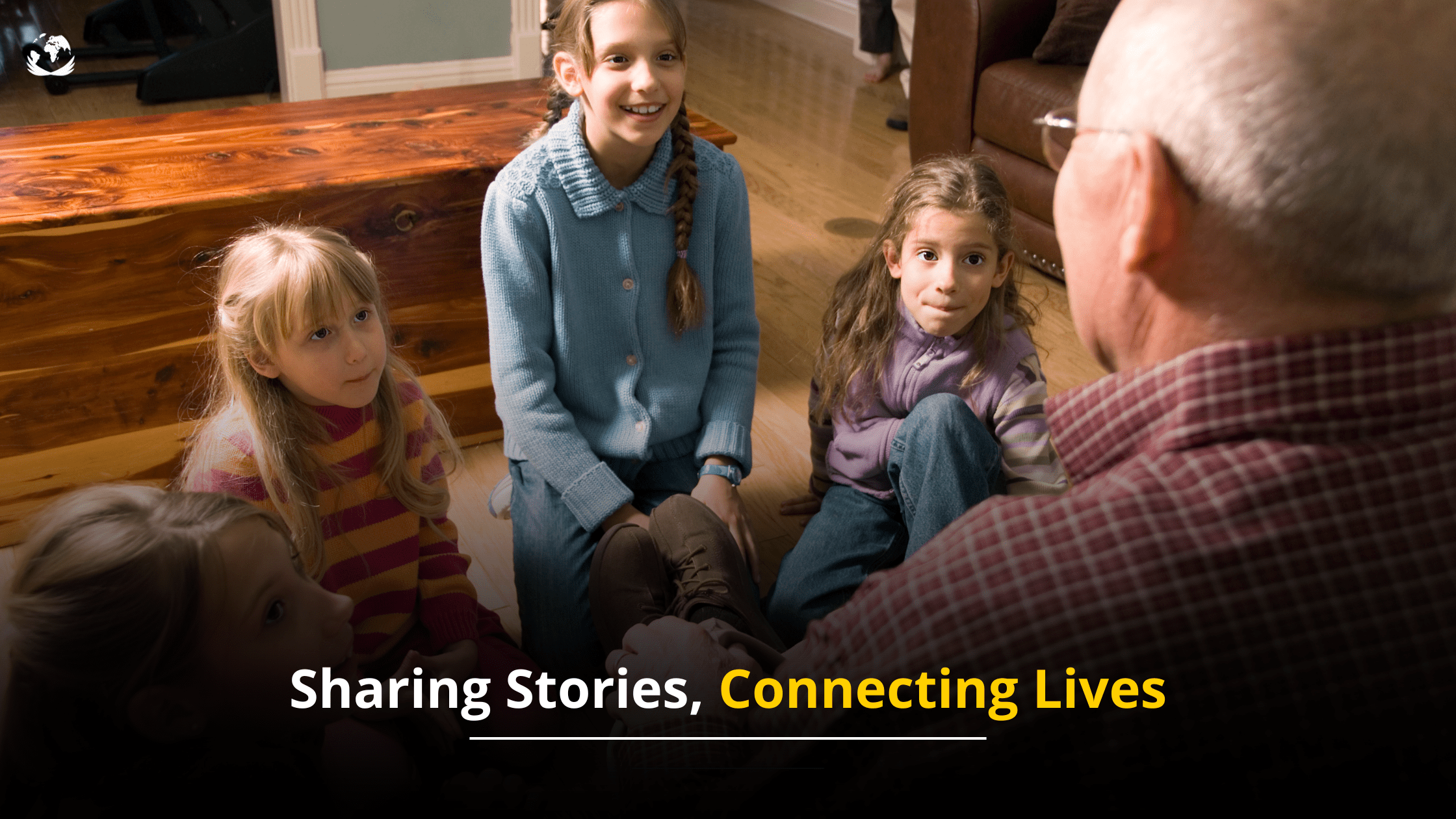Why we tell our stories. Why you should share your story.
I come from a very big family. Christmas was a wonderful event. It was the one time in the year that everyone would come together. That everyone topped out at about 50. It’s difficult to get solid conversation with 50 people in one day. So, Christmas would be over and most of us would go home without having really connected with everyone. None of us had really taken the opportunity to share our story. So, thirty years ago, I decided to interview everyone. I rented a good video camera, set up a backdrop in the basement and interviewed everyone, including my then 2 year old son who was the youngest of the group, and very pleased to say a resounding, “Nooooo!” which he answered to most of my questions. I watched the footage at the time, edited it a bit, made copies for all of my siblings and my parents and sent off the VHS (a lot changes in thirty years) tapes. A great deal happened in my life during the next thirty years, including 5 moves and the tapes were misplaced and in all that time, I haven’t watched the tapes. Since then, my children, along with everyone else, have grown. My parents have both died.
What I remembered about the tapes that I most wanted to connect with were the bits with my own children and what I had remembered as a rich hour plus with my parents. I thought that watching that hour plus would bring me face to face with my parents, as though they were in the room, sharing their vibrancy, their wisdom, their love, and that my questions and their answers were going to be that rich conversation that I would love to be having now.
I recently found those tapes. I dug out an old VHS player that I saved from my parents’ house. I bought a snappy little gizmo to transfer those VHS tapes to a flash drive, and another that would allow me to play VHS tapes on a modern television. Last night I watched the interviews I conducted with my parents, all those thirty years ago. My father had retired the previous year after a wonderfully fulfilling career as an obstetrician/gynaecologist. He was still adjusting to his new role in life, a role he couldn’t yet quite fathom. My mother was adjusting to having him home all day and offering new ideas on how to do things like load the dishwasher.
I was eagerly looking forward to turning on these interviews and basking in the presence of my parents, expecting to feel that I was face to face with them. As I watched, I sank into despair and mourning. The interview was only a limp and ineffectual version of what it could have been. I was awkward and tentative. I didn’t ask any of the thousands of questions I have now. I didn’t follow up on emotions expressed. I didn’t ask how things felt. My parents struggled to find answers and I wasn’t a good enough interviewer to help them open up. Granted we are a waspy, somewhat shy family. But, this was more awkward than I had remembered and more waspy and shy than I had recalled. I went into mourning as I lost them again. I had thought this video had kept a slice of them in time alive. But, what was a live was a palpable awkwardness and almost tragic missed opportunity.
What the videos revealed was an awkwardness between us. It was as though I continued my role as a child, afraid of hearing pain in my parents’ present or past, exhibited by my unwillingness to probe a bit into those places. I interviewed them very superficially so as to avoid tender spots.
Were I to interview them today, and how desperately I wish I could, I would ask those hard questions. I have learned that people want to answer those difficult questions. We want someone to care about those times in our lives that are hard, where we overcame obstacles, where we struggled and just how damn hard it was. We want people to know about those times that show what we are made of. I would have asked my parents how they met, what times in their marriage were especially challenging. What was the glue that kept them together all those years? What made them fall in love? What was it like to raise seven children? What regrets did they have? Did my mother have two miscarriages? How did they mange having four teenagers in the house? How did it feel to retire? What was he doing to keep feeling useful and engaged? What role did painting play in my mother’s life? Did they play tennis everyday? When did they start playing tennis? What was it like for them during the Great Depression? What were their grandparents like? Did my father’s grandfather, a Great Famine refugee, still have a brogue? Did he every talk about leaving Ireland? What was it like going to the family farm in Canada? What was his mother like (I never met her). What was my mother’s father like. What were her parents like when they were young. I would have asked them how I disappointed them, or how I surprised them or what they felt they did well as parents and what they might have done better. What was it like for them when I was so sick those two years as a young girl. How did it happen that they settled in Virginia after growing up in Pennsylvania, traveling to points west for Army service after the war? What was it like to be in medical school during World War II. Did they have friends who died in the war. What was it like living in a neighborhood of German descent during the war.
The thing is, I still have those couple of hours of footage of my parents. I cherish that! But, watching it, after expecting such a rush of their presence, their memories, their insights, their love, I was crushed. I was nauseous with regret for such a missed opportunity. I squandered this treasure of my parents as willing interview subjects. I wanted so much but was left with way too much awkward silence and weak laughter, smiles and sidelong glances, and superficial answers. I would give anything to have that opportunity again, and with that opportunity I would ask all those questions I wish I had asked. I would have asked the questions that told me who my parents were, what they felt, what they loved, what hurt them, what gave them pride, and what caused them regret and sadness.
This is why we tell stories. This is why we ask our elders to tell us stories. We want those stories. We need those stories. We love these stories. These stories are love. These stories inform our lives. They fill in the background of our own stories. When you have the opportunity, ask the questions. If you get a response that something was hard, ask what about it was hard, what that felt like, how did they get through it. The answers to those questions give you insights into their soul and it gives that person, the opportunity to really be seen and heard. Without them, we have empty places in our hearts. Their stories matter. And when you have the time, share your stories here on History Chip. Your children will thank you for it, because sharing stories matters. Your stories matter.
Jean McGavin
Founder, History Chip

